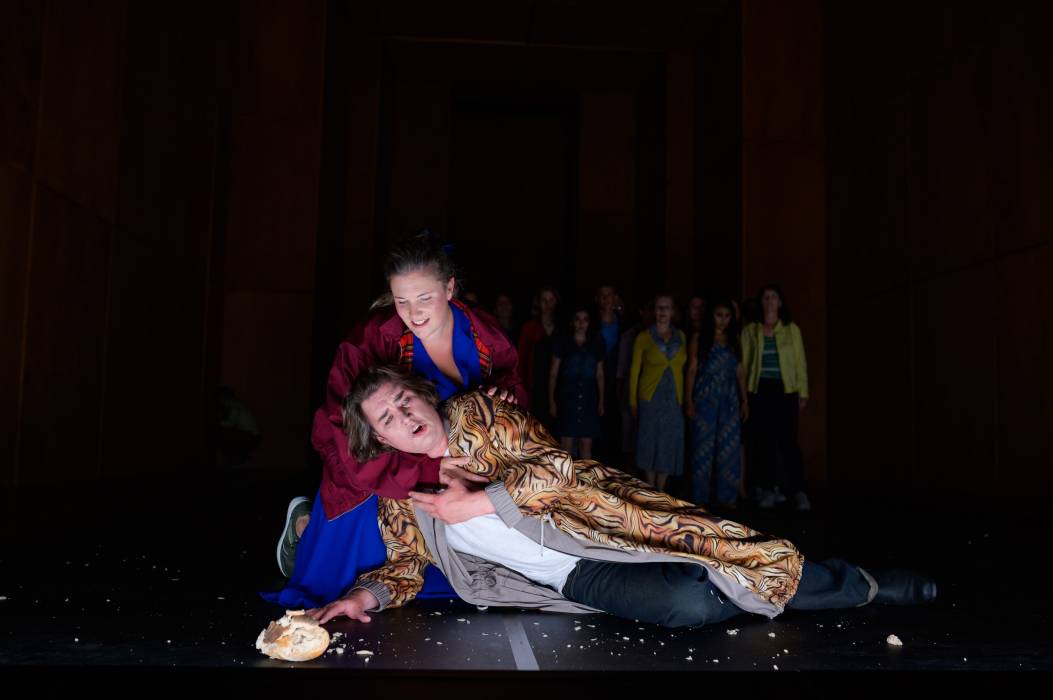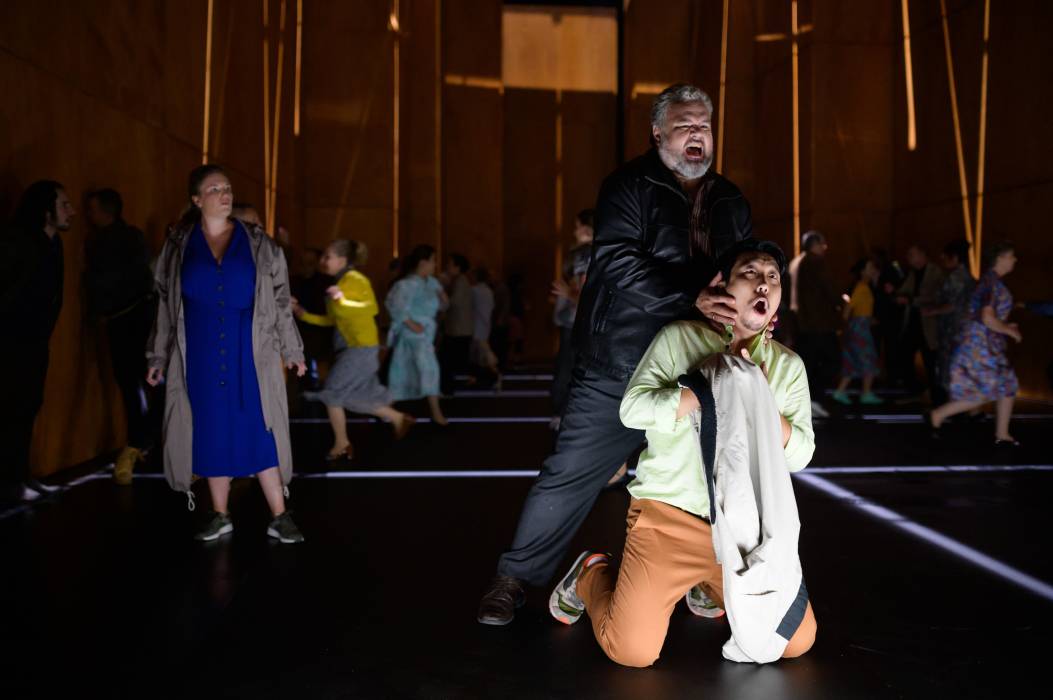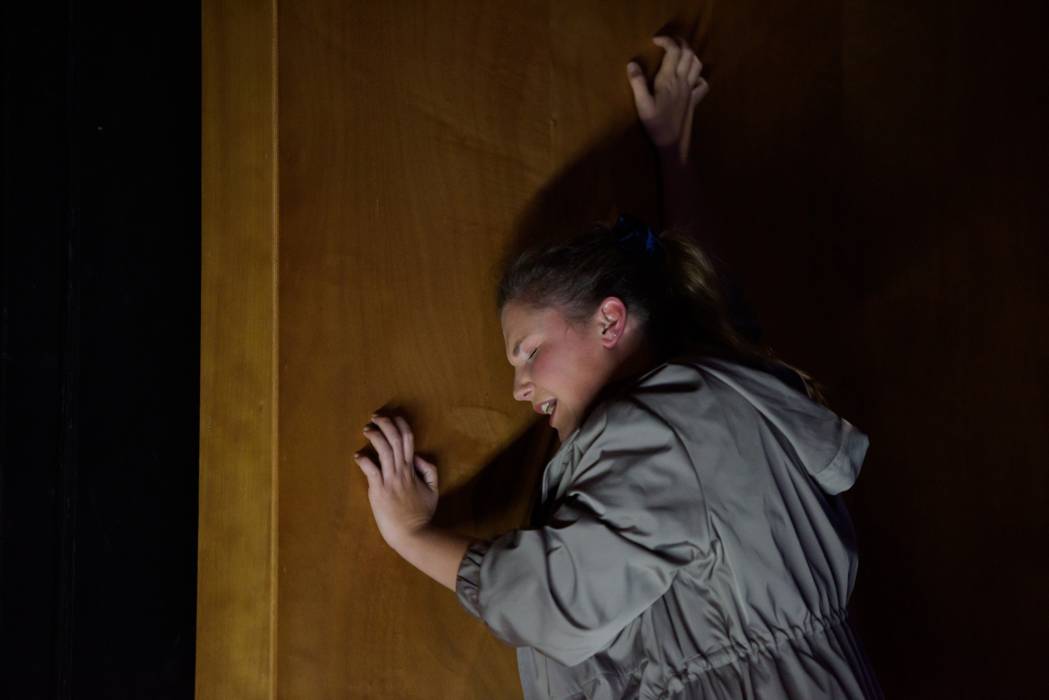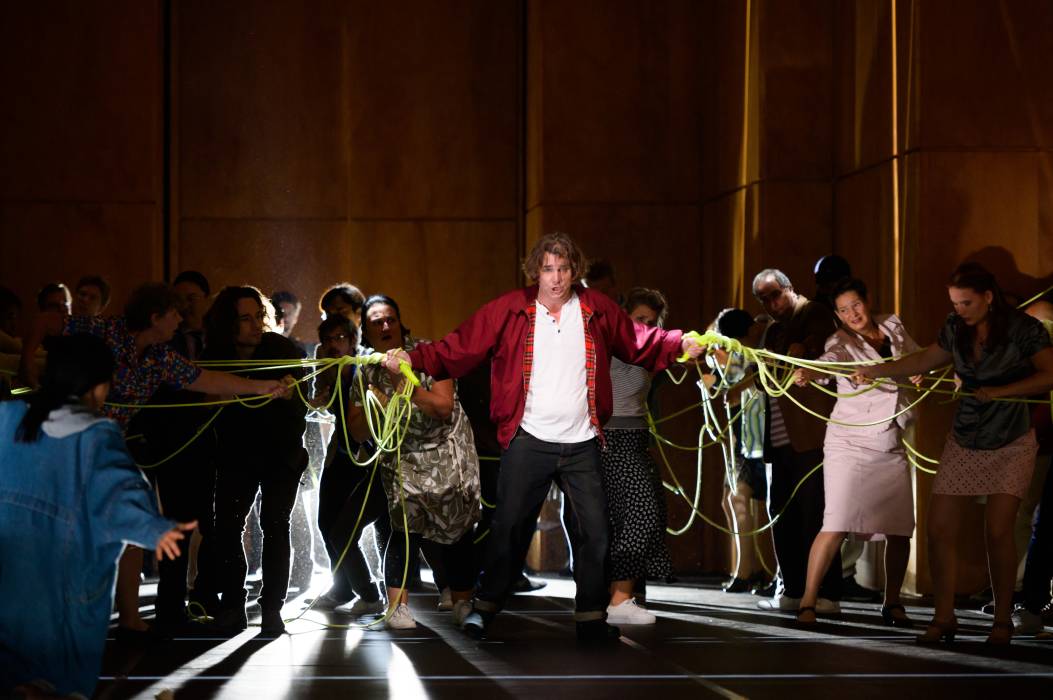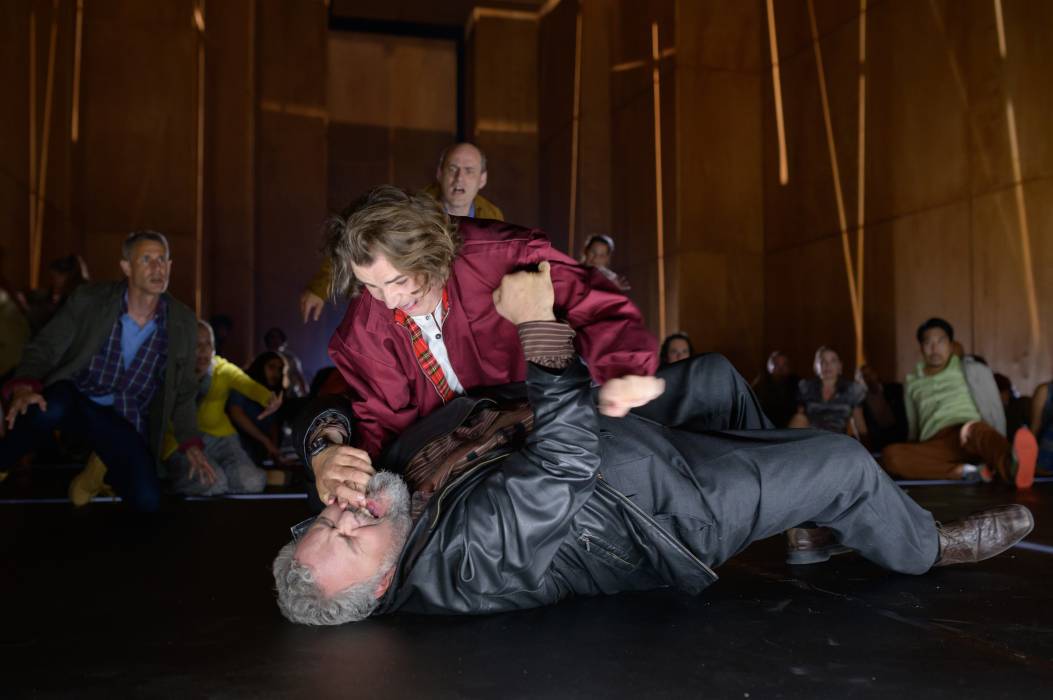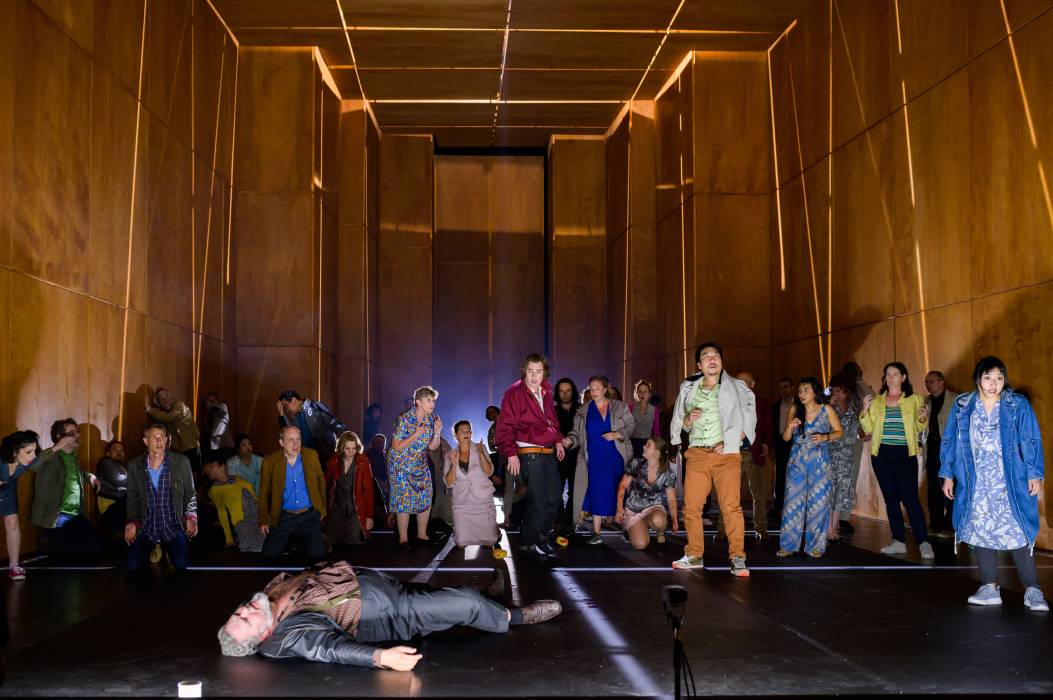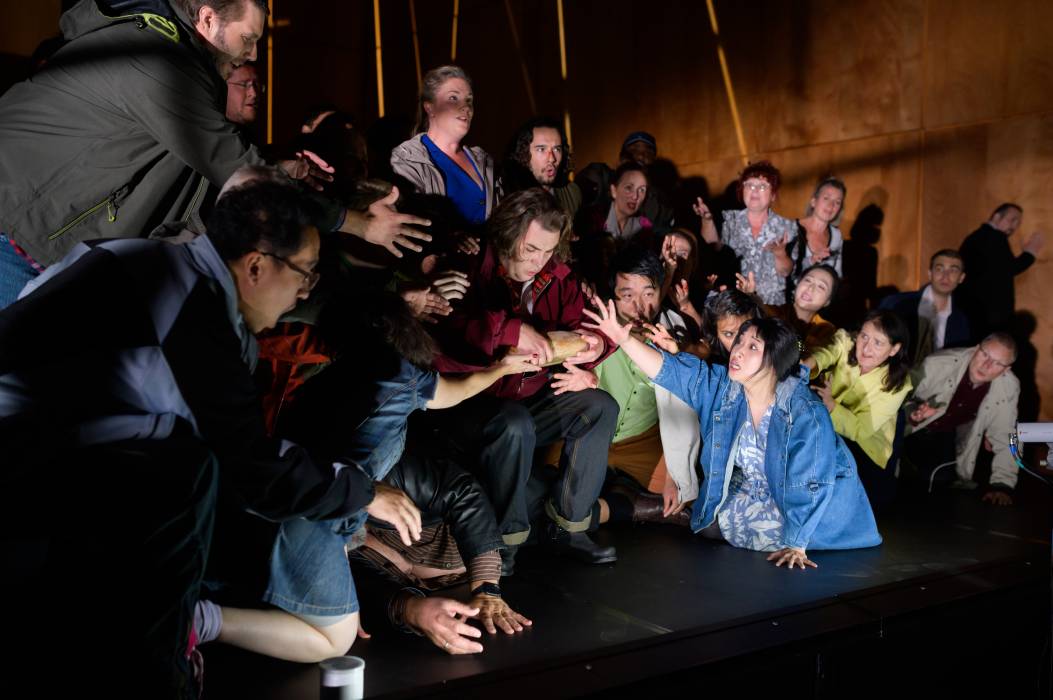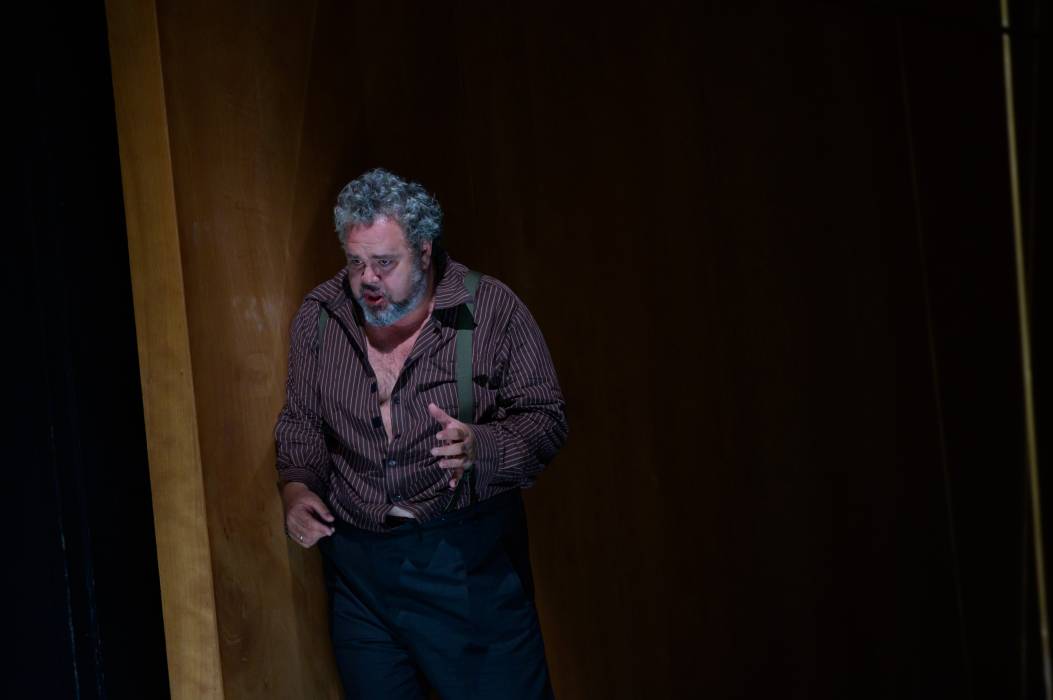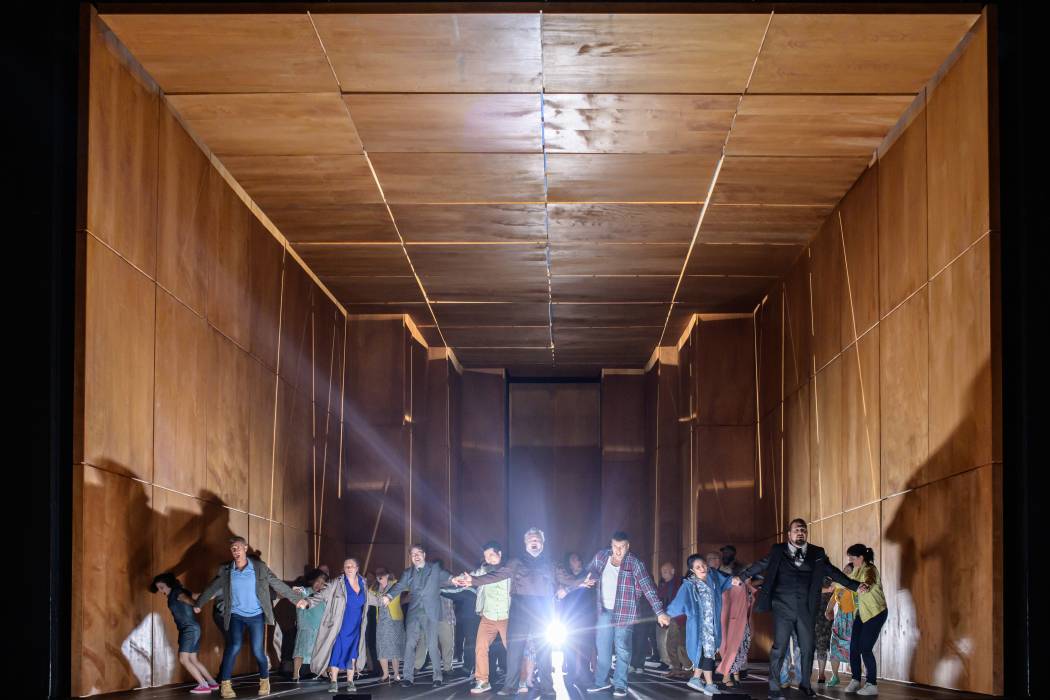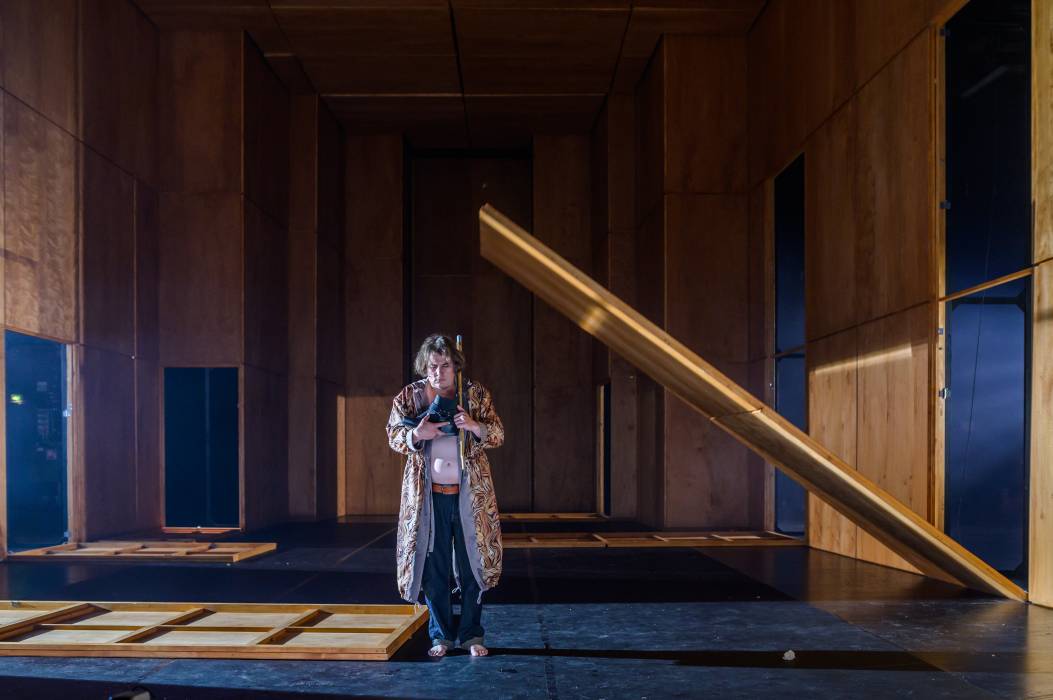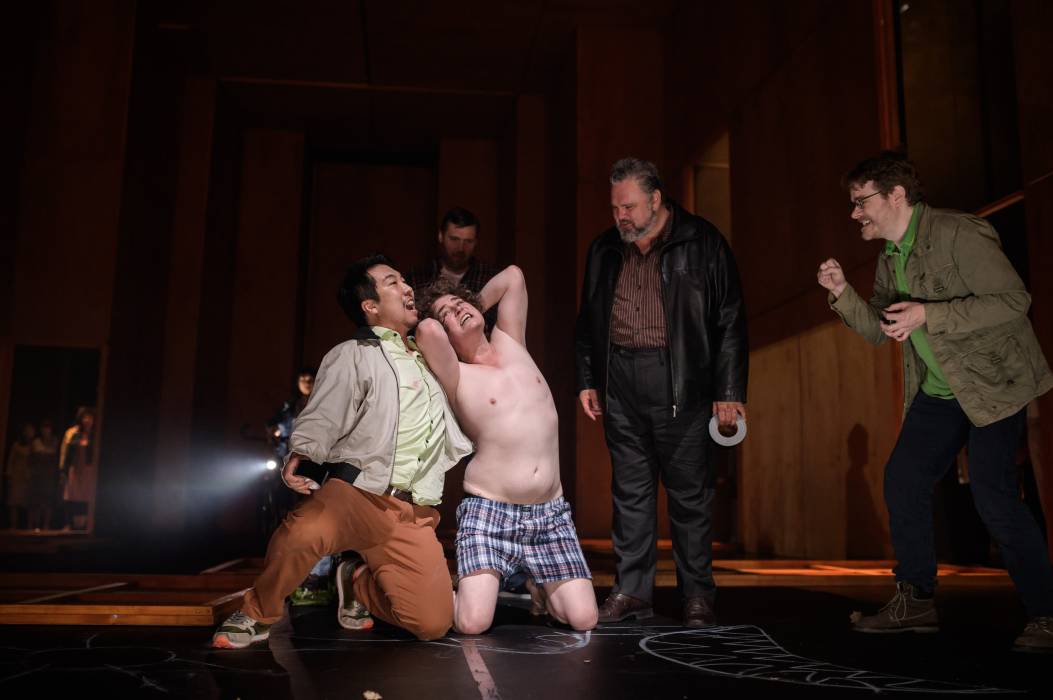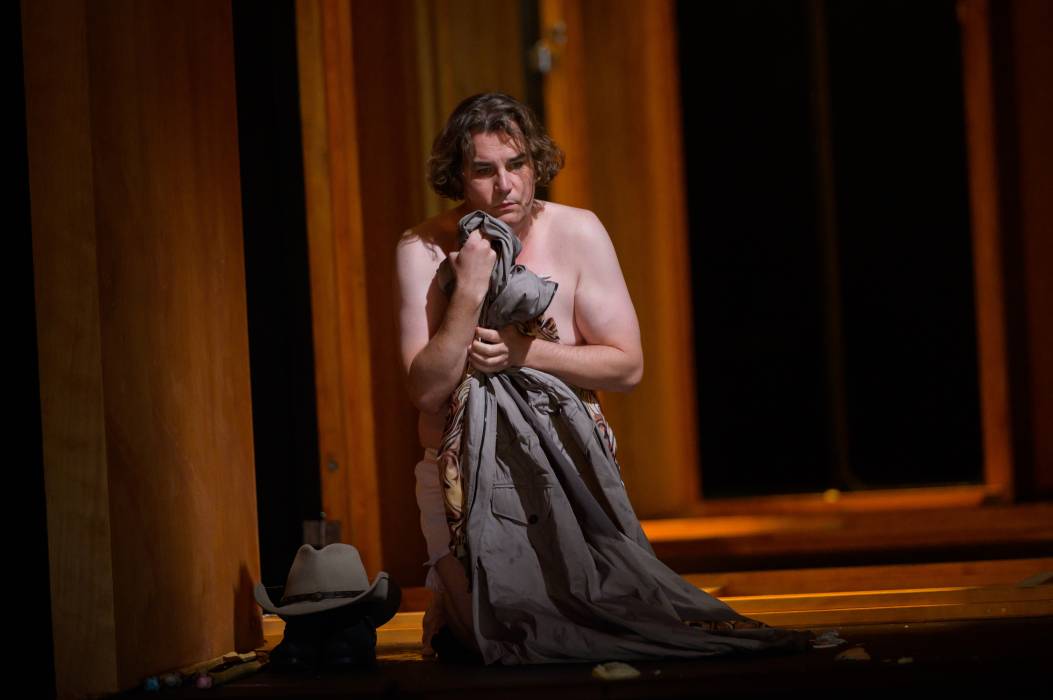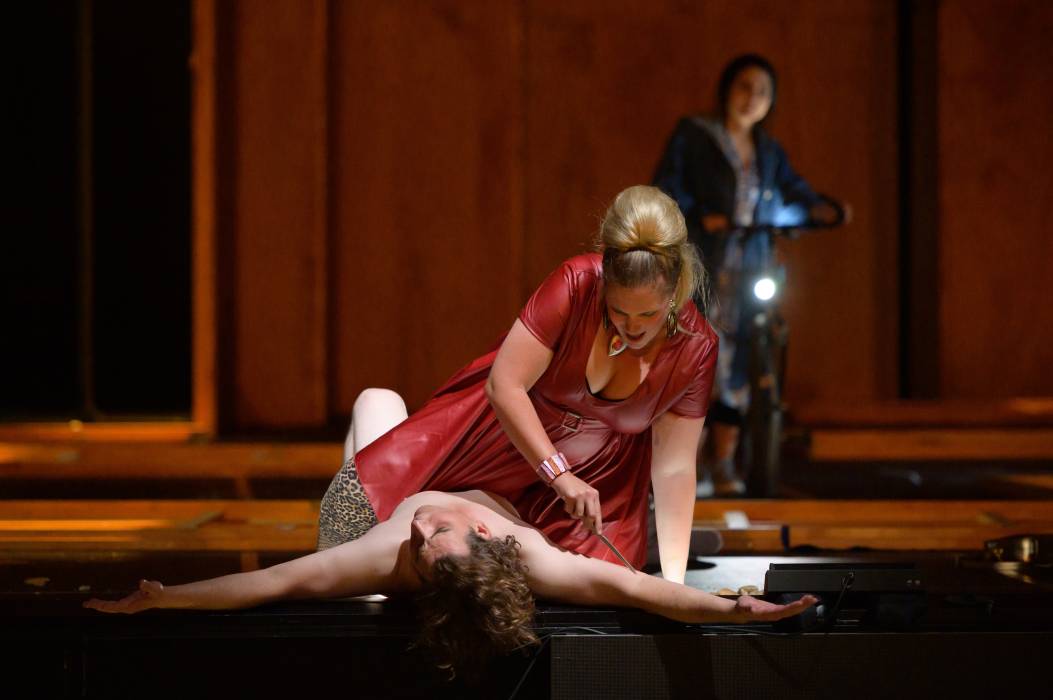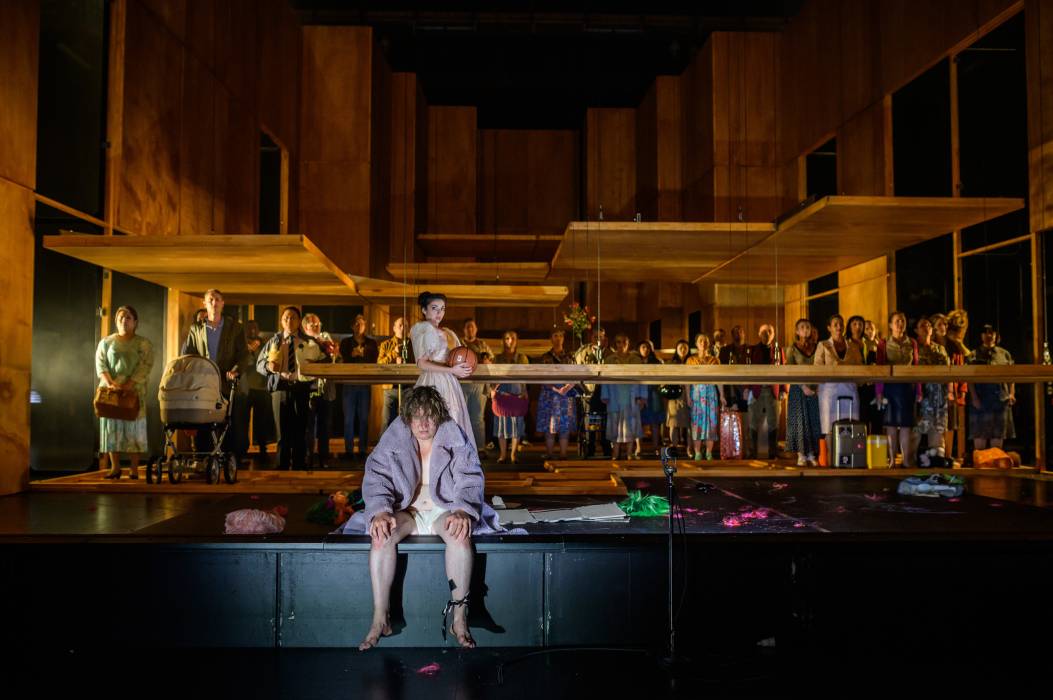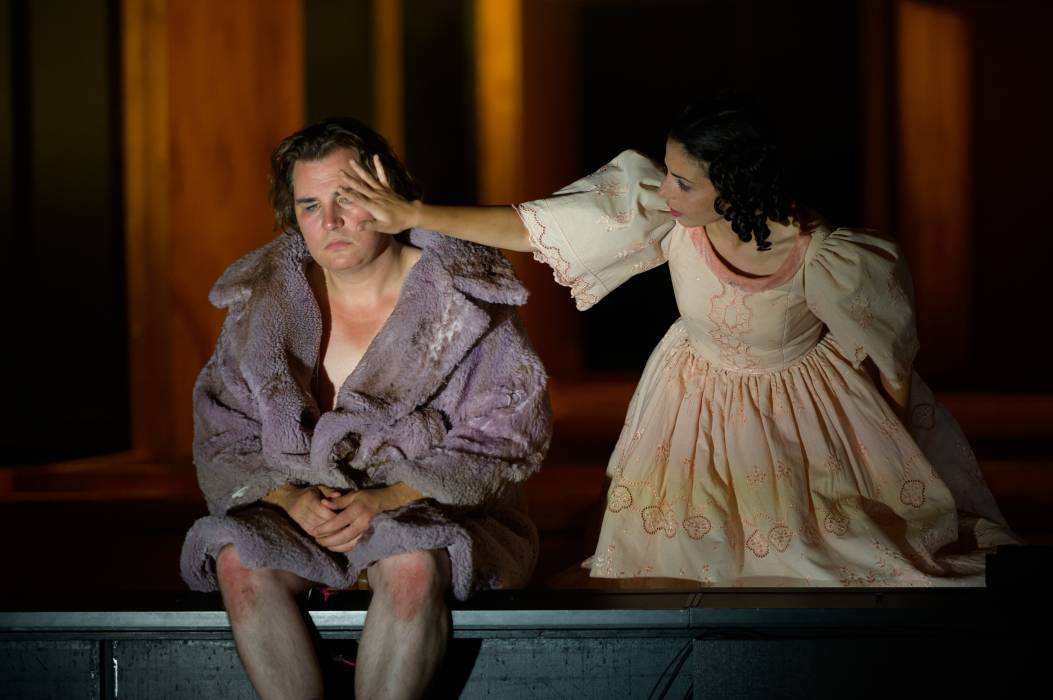»Peter Sonn singt den Samson so, wie er ihn spielt, mit ausgebreiteten Armen und körperbetont dramatisch. Uwe Schenker-Primus ist ein wuchtiger, stimmlich durchweg sicherer Gegenspieler Abimelechs, Emma Moore eine fabelhafte Delilah. Auch das übrige Ensemble: prachtvoll! Bravo!«
(Joachim Lange, 14.9.2022, TA / TLZ)
»Emma Moore entfaltet als Delilah die ganze Wucht ihres dramatischen Soprans.«
(Werner M. Grimmel, 15.9.2022, FAZ)
»Keine leichte Aufgabe für Peter Sonn als Samson, Emma Moore als Delilah, Uwe Schenker-Primus als Delilahs Vater Abimelech und alle anderen, zwischen den rivalisierenden und heftig kämpfenden, gegnerischen Gruppen auch noch zu singen …, aber sie schaffen das grossartig über die drei Stunden hinweg. Kämpfe, Brutalität auf der Bühne. Wie im wahren Leben, wie gerade jetzt wieder, wird sich manch einer im Publikum gesagt haben, denn die Aktualität ist beklemmend.«
(Annette Freitag, 18.9.2022, JOURNAL21.ch)
Lesen Sie hier die ganze Rezension.
Für die Saisoneröffnung in Weimar hatte Operndirektorin Andrea Moses das richtige Händchen. (…)Bieito geht es aber nicht um eine platte Vergegenwärtigung. Er konzentriert sich auf die Personen, versucht, deren innere Zerrissenheit oder auch Wandlung zu zeigen. Peter Sonn ist ein durchschlagend kraftvoll singender Samson, der sich mit ausgebreiteten Armen und nackter Brust in seine Rolle wirft. (…) Emma Moore ist eine leidenschaftlich dramatische Delilah, die die Wandlung zur selbstaufopfernden Begleiterin Samsons in den freigewählten Tod durchweg glaubhaft macht. Dieser „Samson“ ist ein großer Opernbrocken, dessen Ausgrabung sich gelohnt hat! Er wurde angemessen gefeiert.
(Roberto Becker, 12.9.2022, Die Deutsche Bühne)
- Dominik Beykirch (Musikalische Leitung)
- Calixto Bieito (Regie)
- Ingo Krügler (Kostüme)
- Philip Rubner / Calixto Bieito (Bühne)
- Judith Drühe (Dramaturgie)
- Jens Petereit (Choreinstudierung)
- Peter Sonn (Samson)
- Uwe Schenker-Primus (Abimelech)
- Taejun Sun (Micha)
- Avtandil Kaspeli (Oberpriester des Dagon)
- Emma Moore (Delilah)
- Sayaka Shigeshima / Heain Youn (Oberpriesterin der Astarte)
- Oleksandr Pushniak (Seran von Ascalon)
- Jörn Eichler (Gefangenenwärter)
